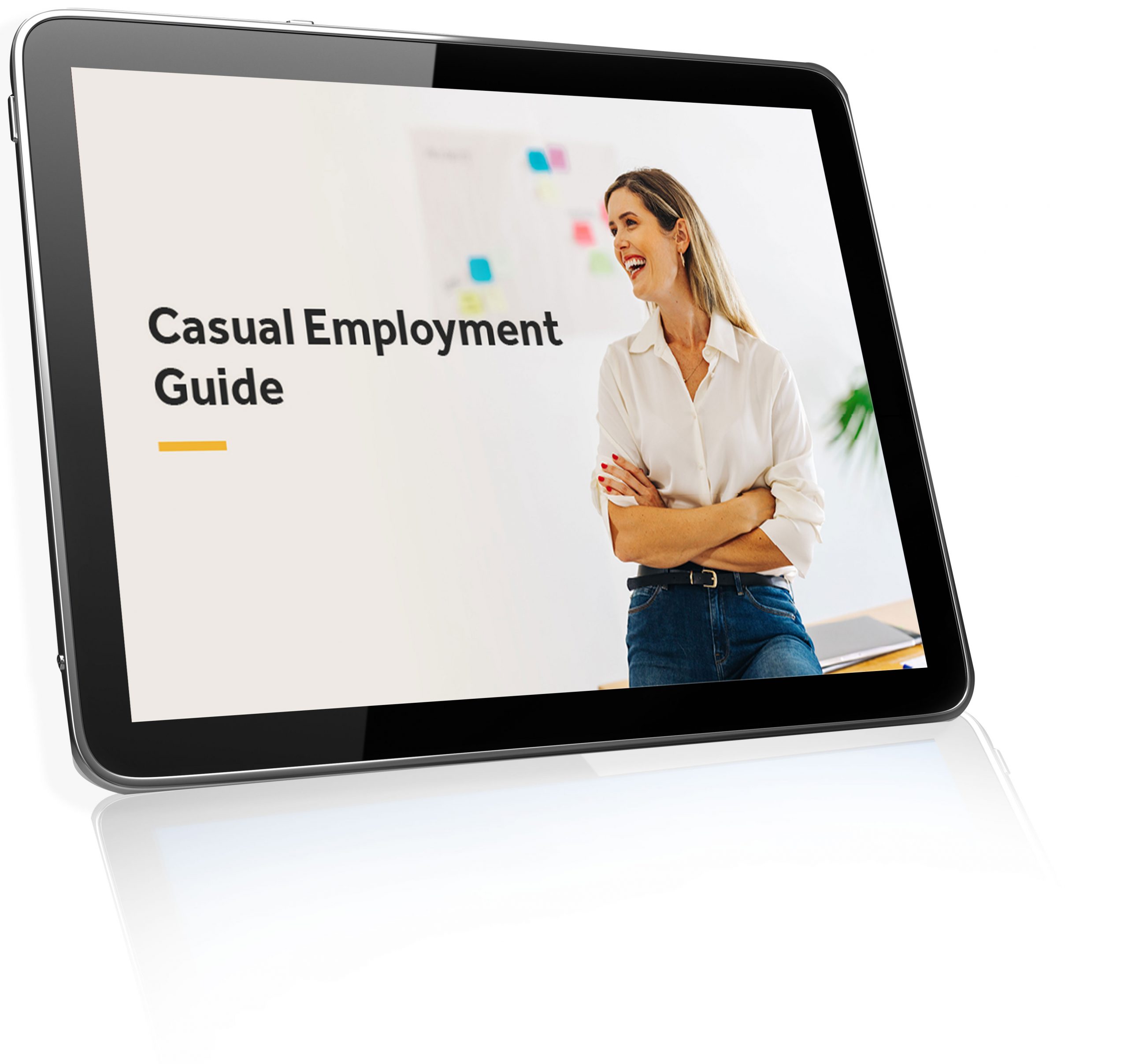
The modern work environment seems to encourage the ‘always on’ worker who arrives early, leaves late, has no lunch-hour, and replies to emails at bedtime. While it’s important to have committed employees who are diligent and hardworking, there’s a fine line between a fully dedicated employee and an exhausted one! Whether your business is trying to get everything completed for a deadline or prepared for a busy period, be aware some staff could reach a state of burnout.
Your star-manager maybe comfortable arriving early and working late but it can be counterproductive in the long run. One burn-out employee can negatively impact your team and business.
As employers it’s valuable to recognise when your staff and managers may be feeling overwhelmed with their workload, and work out how to support employees.
What are the signs of burnout?
Frustration and irritability with co-workers
Forgetfulness and difficulty concentrating
Diminished pride in work
Negativity whereas before they were positive
Why would my employees suffer from burnout?
Some employees may be predisposed to burnout. than others. They may be perfectionists who pride themselves in their work, dedicating large amounts of time and energy to each and every task.
They are also employees who won’t ask for help or support. Therefore, they may be struggling with their workload but unable to voice it. As an employer you may not notice this.
An increase in work volume, or deadlines in quick succession during busy seasonal periods may convince an employee they must work harder and harder to meet what they consider to be their sole obligations.
This kind of ‘I must do it all by myself’ is exactly the kind of attitude that leads people to burnout.
What can I do to help my staff avoid burnout?
Expectations
Remind your employee what your expectations are, make it clear they aren’t expected to regularly work extra hours. Of course, during a busy period or deadline it is expected to work longer than anticipated. But if they are unable to balance their work with their personal life and are missing family events, etc, then it is time to have a conversation with them.
Ask them directly what support they need. Try to be open to suggestions and respond with positivity even if you can’t offer immediate support. Say that you will consider options to support the staff member more during the busier times.
Delegate
Remind the employee to delegate when they can. In smaller businesses, workers might hesitate to ask for help from the owner or consider ‘help’ as a personal weakness. Encourage dialogue and an emphasis on teamwork, so they know how to delegate or collaborate when necessary.
Foster a safe space where staff members feel they can admit when they need more time and support.
Learn To Say No
Everyone has learnt that a ‘can-do’ attitude will get them far, but when is this too much? Again, if the staff member is missing lunch breaks, rushing their work, or cutting corners in a desperate attempt to tick things off a never-ending to-do list, it’s time to support them.
Make it clear that it’s okay to say no and push back on requests from customers, clients or other staff members.
It’s easy to think of another sale as another success, but success is also measured in longevity. If you are burning out all your staff, then where is the success in that?
Let staff know they can say no, and let them know they are supported in pushing back sometimes.
Practical Actions You Can Take
Talk to staff and ask them directly what support they need to prepare for expected busy times
Hire casuals or fixed term staff if this will help your permanent employees
Arrange a busy periods protocol for work volume delegation
Make work volumes limits and expectations clear
Remember employees who can suffer from burn-out are the types who put a lot of pressure on themselves, so help them out by taking some pressure off. Taking care of your employees is taking care of your business.

Does your business hire casuals?
Do you know the essentials of casual employment, like casual loading? It can be tricky for business owners to keep up with entitlements for casual employees. Our guide covers all the basics of casual employment for small businesses.
About Employsure
Employsure is one of Australia’s largest workplace relations and health & safety advisers to small- and medium-businesses. We take the complexity out of workplace legislation to help small business employers protect their business and their people. Call our FREE 24/7 Advice Line today on 1300 651 415.
Please note this blog is intended to give general information and should not be regarded as professional advice. Before making changes to your policies, be sure to consult a qualified professional with staff wellbeing expertise.
